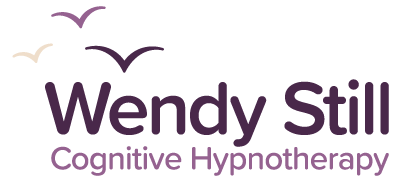Overcome symptoms of Trauma and Post Traumatic Stress Disorder (PTSD).
Recovering from trauma isn’t about erasing the event from your memory or that the pain never existed.
Recovery means acknowledging that it happened and becoming less distressed, having more confidence in your ability to cope as time goes on and restoring emotional stability. It means feeling safe in your own body and regaining your sense of trust in the world again. Healing means the damage no longer controls your life.
When I talk about ‘moving on’, essentially this means that you’ve processed the event fully so that your brain identifies it as past and specific, rather than present and global.
Working with me
I offer you a safe, supportive and non-judgemental environment so that together we can gently release you from the grip of trauma and PTSD, so you are free to move on. There’s no ‘right’ or ‘wrong’ way to think, feel, or respond to what happened, your responses are normal reactions to abnormal events.
Being ‘client led’ means we are always working at the pace and level that is right for you. My primary objective is to help you to feel safe in your body so you can begin to feel a sense of control again.
I appreciate it takes courage, so be assured I work in specific ways to help you feel comfortable at every stage. You won’t have to go into the details of past events in order to release them and move on, unless you feel you need to.
By working as a trauma informed therapist, my approach is based on the latest findings in neuroscience relating to the structure and alleviation of trauma and PTSD. I use a new dynamic approach, which combines aspects from one of the most successful, researched and empirically validated trauma treatments with the Cognitive Hypnotherapy model.
You can release trauma, whether it happened years ago or recently. You can heal and you can have a different mindset, which means you can get back to feeling more positive and being happier.
Trauma
When someone experiences an event that is distressing or disturbing, it can be overwhelming and shatter our sense of security. It can cause feelings of helplessness, of being emotionally out of control and unable to cope.
We all react to trauma in different ways, experiencing a wide range of physical and emotional reactions. These responses are normal reactions to abnormal events.
Emotional & psychological symptoms:
- Shock, denial, or disbelief
- Anger, irritability, mood swings
- Confusion, difficulty concentrating
- Guilt, shame, self-blame
- Anxiety and fear
- Withdrawing from others
- Feeling sad or hopeless
- Feeling disconnected or numb
Physical symptoms:
- Insomnia or nightmares
- Edginess and agitation
- Muscle tension
- Aches and pains
- Fatigue
- Being startled easily
- Racing heartbeat
Post Traumatic Stress Disorder (PTSD)
PTSD is a set of reactions that may develop following a traumatic experience.
It’s normal to experience strong feelings of fear, sadness, guilt, anger or grief in the first few days and weeks after a traumatic event. With the support of family and friends these feelings may lessen and eventually be resolved. However, if the distress continues or increases it may mean the person has developed PTSD.
The four main signs of PTSD:
- Re-living the traumatic event – flashbacks, vivid nightmares, unwanted memories, strong physical responses when reminded of the event (such as heart palpitation or intense panic)
- Hypervigilance – constantly being on the look-out for danger, feeling wound up, having trouble sleeping or concentrating, mood swings, feeling angry or irritable, becoming easily startled or taking risks
- Avoiding reminders of the event – avoiding anything that brings back memories of the trauma including places, people, activities, and thoughts or feelings
- Negative thoughts and feelings – anger, guilt, feeling afraid, or numb and flat a lot of the time, feeling cut off and loss of interest in day-to-day activities
A person with PTSD may also experience depression or anxiety. They may feel lonely and isolated; unable to connect and talk about how they are feeling.

